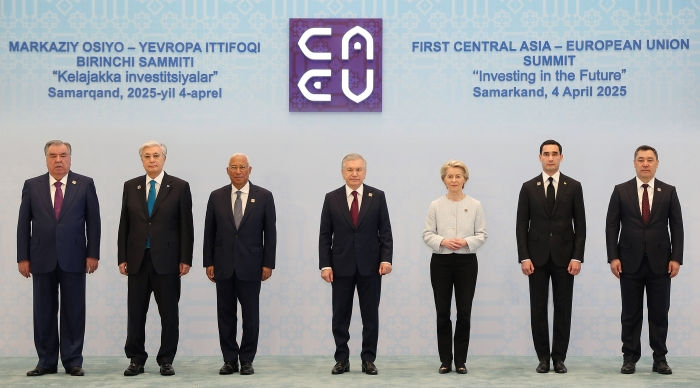At the market: Whose son are you?
- Rashid
- Jan 31, 2022
- 4 min read
Updated: Mar 31, 2024
Listen to this blog post
“I will go to the market, mama, just tell me what to get.” – something I would often say when visiting my parents in Namangan, Uzbekistan. The Chorsu market is a default centre of the city and a place where one can get anything from a wedding dress to a shovel. People come predominantly for everyday produce, though.
Mama offers me not so much of a grocery list but rather a map and instructions:
“Once you enter the market turn right at the first vegetable aisle; this is after the rice row. Get the bell peppers and the herbs from the very first vendor in this aisle - Nasibakhon. Tell her you are my son, otherwise she will give you bad produce. Get 16 bell peppers, two bushels of dill, two bushels of coriander, two bushels of basil and two of green onion. See if she has any good cucumbers and tomatoes also. If not, there is another merchant further down the same row. Maybe 20 meters in. Across is a stand with soap and other household items. Make sure that the cucumbers are not too big and not bitter. Tomatoes should be red but not too soft. Be sure to bargain. Having bought these, go ahead and buy some eggs from Matluba. You might recognize her; we always buy eggs from her. She is sitting next to the carrot merchant, at the edge of the egg aisle. Tell her you are my son. Ask for 30 home eggs. Sometimes her daughter is replacing her. She may not recognize you. In this case, tell her that you want orange yolks but make sure she doesn’t overcharge you. Put the eggs into this red bucket. Put the bucket into this bag. On the way out of the bazaar, get some bread. At the corner near the cold drinks, there are twins Khasan and Khusan selling nice bread. Buy some from them. Maybe two large ones and two small ones. Dad usually gets the bread from them, so tell them this is for Fariddomla (teacher Farid), they will see you and understand whose son you are. Make sure the bread is not brushed with oil. They do this for marketing, to make it shiny. We don’t need this step. If the bread is hot, keep the bag open on your way back, so it does not get soggy in plastic.”

With these instructions, I head out. This time I decided to walk. Down the same road, I took every day for school. I know every stone on it. Passing the barber, passing the shoe factory, passing the Ankhor restaurant where I had my first job. I decided to take the secret way via a narrow bridge barely hanging over the canal.

Crossing the train tracks and passing the hidden Orthodox church. There are merchants – father and son - selling sunflower seeds, chewing gum and cigarettes on a small table in the shade of a mulberry tree. I have seen them here ever since we moved to this part of town in 1999. They must have sat here before that too. Looking so alike. Their skin wrinkled by the sun.
I follow the maze of old mahalla streets that take me to one of the city’s main arteries – Akhunbabayeva. From here I enter the factory neighbourhood that smells of processed cottonseed oil. I walk by the ‘human market’ where men stand in anticipation of being hired for private construction gigs. Their eyes combine hope and despair. With simple bags containing a change of clothes held in hands crossed behind their backs. They run after every car that slows down, in hopes of being hired.
The road takes me further and over another canal. I am by the university. My father has worked here most of his life. My sisters studied here. I have mixed feelings about the place. Emotions of nostalgia are combined with the feeling of frustration for the bureaucracy and injustices that surround this education system. I keep going. The street is bare. Not a single tree. In the summer it gets way above 40C and being outside between 12 and 16 is unbearable. Emotional again. Angry that they cut the hundred-year-old maples here. I remember the sound that the birds made here in the evenings when looking for their nests. It was almost deafening. Back in 2008, nearly 20,000 trees were cut in this town alone.
I walk by the theatre. It used to be hidden behind those maple trees. Now, resembling the Acropolis in Athens it is standing in the open.

The air is filled with a mix of exhaust gasses, and the smell of kebabs and fruit. The noise of human conversation and endless honking – I am nearing Chorsu. The market is overwhelming. I am grateful for mama’s instructions for I feel like the market would just absorb me if I didn’t know where to go.


At the very first stop by Nasibakhon I decide not to mention whose son I am. It just feels odd to do this. I get the bell peppers and the herbs. I count out the inflated currency. Nasibakhon stares at me for a while. Then asks, “are you the son of Raisopa (older sister Raisa)?”
“Yes, I am” – I respond.
Something unexpected happens. Nasibakhon empties my bags and replaces all the produce. “Raisopa would not be happy with these” - she says.
“You should have told me you are her son right away” – she shames me for having wasted everyone’s time.
Off I go, having learned my lesson. Making sure to present my verbal business card to all further merchants. I am the son of Raisopa and Fariddomla.













Comments